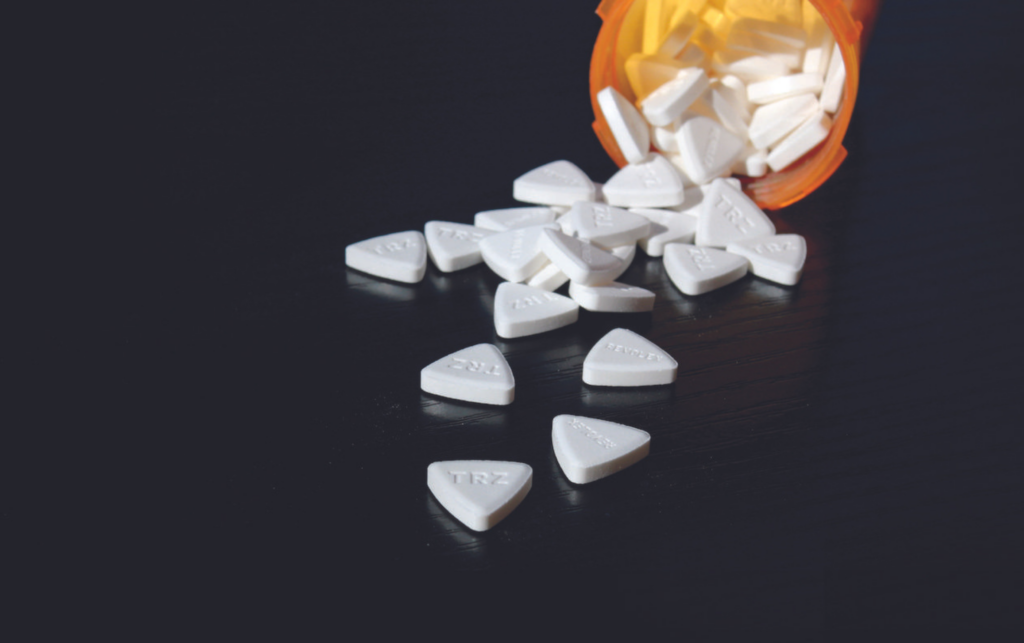By: Dr. Kim Feinstein, Red Mountain Weight Loss® Clinical Psychologist & Weight Loss Specialist
Are you approaching or experiencing the dreaded menopause? Do you suffer from hot flashes, mood swings and/or sleep disturbance? Patients often complain that the hormonal shifts of menopause come with a side order of extra pounds, which causes an emotional burden related to weight gain that often affects self-image, interpersonal relationships, sexual function and overall quality of life. However, the idea that menopausal weight gain is inevitable and unavoidable is actually a myth. In fact, a research study which appeared in the Journal of the Academy of Nutrition and Dietetics proves it.
The research study included 500 overweight/obese postmenopausal women. Half of the women were expected to follow a weight loss diet plan, which included frequent meetings with nutritionists, psychologists and exercise specialists. None of these services were available to the other half of women; however, they were given the option to attend seminars on overall general health. At the conclusion of the 4-year study, it was found that those who received nutritional, psychological and exercise services lost an average of 8 pounds, compared to a half a pound among those who were part of the general health group
Such results are exciting because the study demonstrates the importance of approaching weight loss from a psychological perspective as well as a traditionally-medical one. Careful attention to lifestyle choices — particularly diet and exercise — is important, as is setting reasonable and achievable weight loss goals.
So, what are these rules for successful weight loss and weight management during and after menopause? Below I have outlined several diet and lifestyle rules that will help you to sail through this difficult time of transition.
Exercise
Muscle mass declines as we age due to decreasing activity levels and decreasing testosterone levels which in turn equates to a decreased metabolism. Therefore, an exercise routine that incorporates good strength training can help mitigate that effect by maintaining and even building muscle mass. Remember that strength training will not make you “bulky,” but actually make it easier for you to shed unwanted pounds.
Healthy and Balanced Eating
It is more important than ever to follow a medically supervised weight loss meal plan. Such guidelines will help you to reduce your caloric intake without skimping on nutrition. Because your metabolism slows with age, you actually need to eat less to maintain weight. So, if your goal is to lose weight, you will need to cut calories more than you had to cut 20 years ago when dieting. Your RM provider will create an individualized meal plan that will help you to lose the weight and keep it off.
Limit Sugar Intake
For most, this is probably the hardest rule to follow. You probably already know that eating too much sugar causes weight gain, but current research also associated high sugar intake with increased rates of obesity, heart disease, and cancer.
In the average American diet, sugar accounts for approximately 300-400 calories a day and the average person consumes nearly 42.5 teaspoons of sugar daily. Approximately half of these calories come from sugar-sweetened beverages which include juices, energy drinks, Starbucks beverages and more. Additional foods that contribute to excess dietary sugar include chocolate, cookies, cakes, doughnuts, ice cream and candy.
Unfortunately, if you want to lose weight, you can’t have your cake (all of the time) and eat it too. Moderation is key. Still, if you are thinking to yourself that there is no way you could possibly live without sugar, you may be surprised. Ask your RM provider for diet-approved sugar substitutes that will leave you feeling satisfied and lighter on the scale! Limiting sugar intake, also has been found to be helpful in reducing the symptoms of both menopause and PMS.
Reduce Alcohol Consumption
Alcoholic beverages add additional calories to your diet and significantly increase the risk of weight gain. Also, alcohol lowers inhibitions, which often leads to impulsive and poor decision-making when it comes to food choices. Even the most committed dieter will struggle with fighting the urge to indulge when tipsy.
Get support
Surround yourself with family, friends, and loved ones who support your desire and efforts to live a healthy lifestyle. Better yet, team up and make the lifestyle changes together. It’s easier to stay accountable when you have supportive people around you.
If you are struggling with post-menopausal weight gain, there are solutions! If you haven’t already, contact any of our locations today and schedule a Weight Loss Consultation to get yourself started on an individualized program which will be able to help you learn the skills necessary to avoid weight gain and be your best self.







